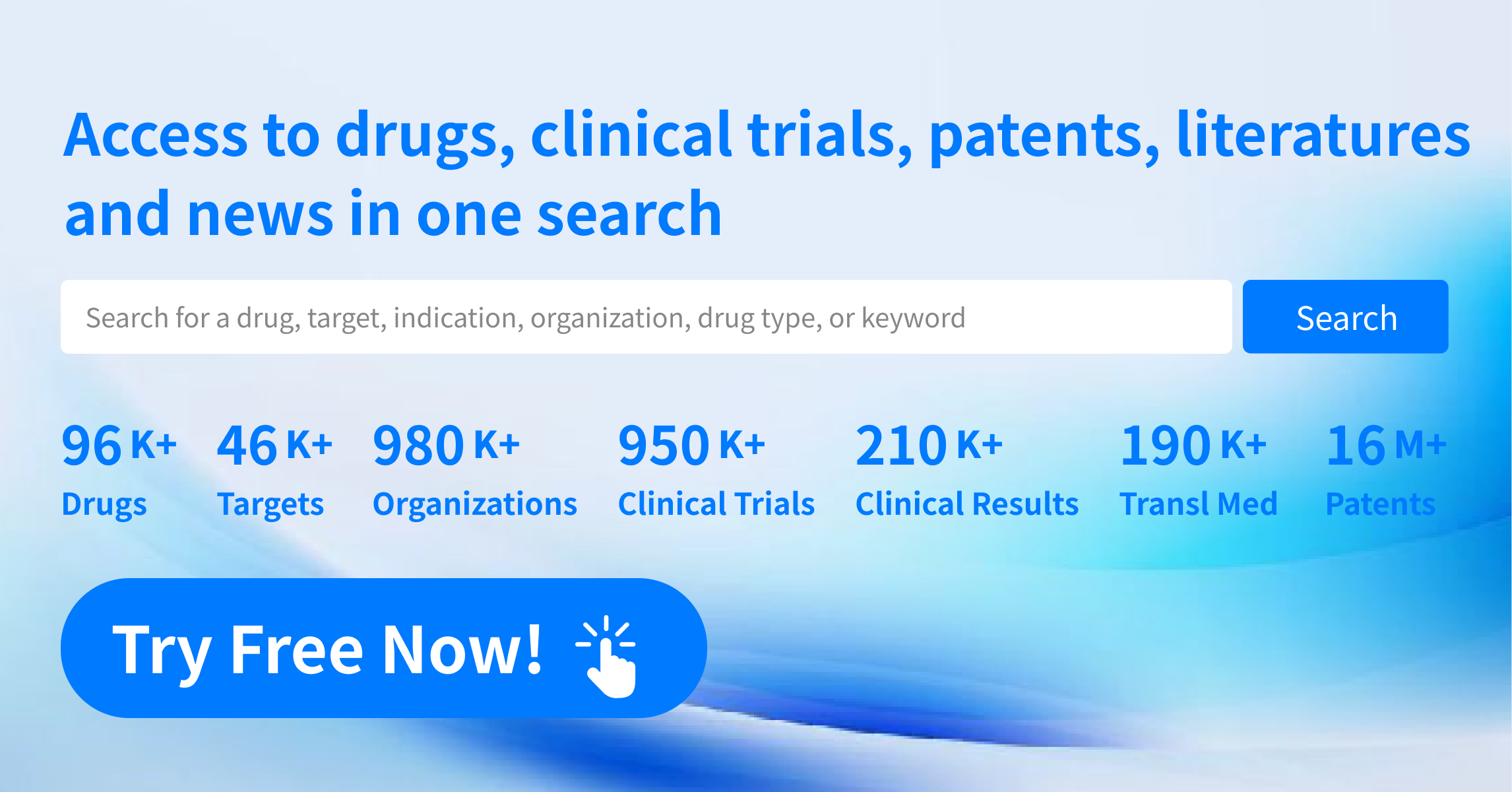Global New Drug Research and Development Progress Weekly Report (9.16-9.22)
What drugs have been approved this week?
1.Novartis: CDK4/6 Inhibitor Ribociclib (Kisqali) Approved for a New Indication in Breast Cancer Adjuvant Therapy
On September 17, Novartis announced that the CDK4/6 inhibitor Ribociclib (Kisqali) has received FDA approval for a new indication as an adjuvant treatment for early-stage HR+/HER2- breast cancer.
Ribociclib is the second globally approved CDK4/6 inhibitor. The first was Pfizer's Palbociclib, which reached a peak sales of $5.437 billion in 2021, capturing 70% of the market for this target. However, Ribociclib and Abemaciclib, which followed closely behind, are also showing strong growth and gradually eroding Palbociclib's market share. Notably, Eli Lilly's Abemaciclib has shown remarkable growth, reaching $3.863 billion in sales by 2023, thanks in large part to its breakthrough in adjuvant therapy.
2.Keytruda Receives FDA Approval for New Indication in Malignant Pleural Mesothelioma
On September 17, the FDA website announced that Merck's pembrolizumab (brand name: Keytruda) received approval for a new indication. It is now approved for first-line treatment of unresectable advanced or metastatic malignant pleural mesothelioma (MPM) in combination with pemetrexed and platinum-based chemotherapy. This approval is primarily based on the positive results from the Phase III KEYNOTE-483 trial. The results demonstrated that, compared to the control group, patients in the Keytruda group had a significantly longer median overall survival (OS) (17.3 vs. 16.1 months, HR=0.79, p=0.0162) and progression-free survival (PFS) (7.1 vs. 7.1 months, HR=0.80, p=0.0194). Additionally, the confirmed objective response rate (cORR) was higher in the Keytruda group (52% vs. 29%), and the median duration of response (DOR) was longer (6.9 vs. 6.8 months). Currently, only three innovative therapies have been approved globally for the treatment of MPM, including nivolumab (BMS/Ono Pharmaceutical), TTFields (Novocure/Zai Lab), and Keytruda.
3.AstraZeneca's Fasenra Receives FDA Approval for Eosinophilic Granulomatosis with Polyangiitis
On September 18, AstraZeneca announced that its antibody therapy Fasenra (benralizumab) had been approved by the US FDA for the treatment of adult patients with eosinophilic granulomatosis with polyangiitis (EGPA). EGPA is a rare immune-mediated vasculitis that can lead to multi-organ damage and can be fatal if left untreated. According to the press release, this is the second biologic approved by the FDA for the treatment of EGPA. The FDA’s approval is based on positive results from the Phase III MANDARA clinical trial, which were published in the New England Journal of Medicine. The trial compared Fasenra to the IL-5 monoclonal antibody Nucala (mepolizumab) in patients with relapsing or refractory EGPA. The results showed that nearly 60% of patients treated with Fasenra achieved disease remission, meeting the non-inferiority standard compared to the active control group. Fasenra is a monoclonal antibody that binds to the IL-5Rα receptor expressed on the surface of eosinophils. By binding to IL-5Rα, it recruits natural killer cells to induce eosinophil apoptosis, thereby rapidly eliminating these cells. Fasenra is already approved in over 80 countries and regions, including the US, Japan, the EU, and China, as an add-on maintenance treatment for severe eosinophilic asthma (SEA).
4.Johnson & Johnson: New Indication Approved for Amivantamab
On September 19, Johnson & Johnson announced that the FDA had approved its EGFR/c-Met bispecific antibody Amivantamab (RYBREVANT®) in combination with standard chemotherapy for the treatment of adults with locally advanced or metastatic NSCLC with EGFR exon 19 deletions or L858R substitution mutations, whose disease progressed during or after EGFR-TKI therapy.
This combination therapy drew significant attention due to its comparison with AstraZeneca's blockbuster drug Osimertinib. On August 20, the FDA approved Amivantamab in combination with third-generation EGFR-TKI as a first-line treatment for EGFR-mutant NSCLC. This latest approval covers second-line treatment following Osimertinib, further expanding treatment options for this type of lung cancer.
The new indication is based on the results from the MARIPOSA-2 study (NCT04988295), a Phase III trial investigating Amivantamab in combination with chemotherapy for NSCLC patients resistant to Osimertinib. The study met its dual primary endpoints, becoming the first Phase III trial to demonstrate a clinically meaningful improvement in progression-free survival (PFS) following Osimertinib treatment. Results showed that the combination therapy reduced the risk of disease progression or death by 52% compared to chemotherapy alone, with a PFS of 6.3 months versus 4.2 months. The overall response rate (ORR) for the combination therapy group was 53%, compared to 29% for chemotherapy alone.
What drugs are filed for market approval this week?
1.Hengrui Pharmaceuticals: World’s First PD-L1/TGF-βRII Bispecific Fusion Protein Submitted for Market Approval for First-Line Gastric Cancer Treatment
On September 19, Hengrui Pharmaceuticals announced that its New Drug Application (NDA) for the anti-PD-L1/TGF-βRII bispecific fusion protein "Retlirafusp alfa injection (SHR-1701)" has been accepted by the NMPA. The proposed indication is for the first-line treatment of locally advanced unresectable, recurrent, or metastatic adenocarcinoma of the stomach and gastroesophageal junction, in combination with fluoropyrimidine and platinum-based chemotherapy. Retlirafusp alfa is a bispecific fusion protein independently developed by Hengrui Pharmaceuticals, designed to promote the activation of effector T cells while also improving immune modulation within the tumor microenvironment. This dual action enhances the immune system’s ability to attack tumor cells. Currently, there are no approved products of its kind globally.
2.Ocumension Therapeutics: New Drug for Post-Cataract Surgery Inflammation Submitted for Market Approval
On September 20, the CDE website indicated that Ocumension Therapeutics' new drug application for "Dexamethasone implant" has been accepted for the treatment of inflammation following cataract surgery. The dexamethasone implant was introduced by Ocumension in January 2020 from EyePoint Pharmaceuticals. Under the agreement, EyePoint will receive a $2 million upfront payment and tiered sales royalties, with additional development, regulatory, and commercial milestones totaling up to $12 million. Ocumension has exclusive rights to develop and commercialize the product in Mainland China, Hong Kong, Macau, and Taiwan. OT-502 is a novel, biodegradable, single-injection, sustained-release anti-inflammatory drug that immediately releases the active ingredient dexamethasone after injection, with continued release over 21-22 days. It is biodegradable and does not require removal. OT-502 uses Verisome drug delivery technology to deliver dexamethasone to the anterior chamber of the eye, directly inhibiting the synthesis and release of inflammatory mediators. This provides a stable and sustained anti-inflammatory effect post-surgery, reducing the need for frequent steroid eye drops and addressing issues of poor adherence in some post-cataract surgery patients, offering an improved option for managing post-surgical inflammation.
3.AbbVie: Bcl-2 Inhibitor Venetoclax Submits Application for New Indication
On September 20, the CDE website revealed that AbbVie has submitted a new indication application for its Bcl-2 inhibitor, Venetoclax. This is the drug’s third market application in China, though the specific indication has not been disclosed. Venetoclax is an oral small molecule targeted therapy developed by AbbVie in collaboration with Roche. It works by binding to and inhibiting Bcl-2, thereby releasing pro-apoptotic proteins to induce cancer cell death. Bcl-2 is a key protein regulating apoptosis, and its overexpression is linked to tumor development, progression, and drug resistance in various human cancers. In April 2016, Venetoclax was approved by the FDA for the treatment of chronic lymphocytic leukemia (CLL)/small lymphocytic lymphoma (SLL), making it the first Bcl-2 inhibitor to be approved globally.
What major clinical trial results were released this week?
1.Daiichi Sankyo/Merck: HER3 ADC Achieves Clinical Endpoint, Plans for Approval
On September 17, Daiichi Sankyo and Merck jointly announced that the HER3 ADC drug patritumab deruxtecan (HER3-DXd) demonstrated a statistically significant improvement in progression-free survival (PFS) in the Phase III HERTHENA-Lung02 study, meeting its primary endpoint. The study evaluated the efficacy of the drug in EGFR-mutant non-small cell lung cancer (NSCLC) patients who had previously received frontline EGFR-TKI treatment. Overall survival (OS) data remains immature and will continue to be evaluated. HER3-DXd is Daiichi Sankyo’s third leading ADC following Enhertu and Dato-DXd. In terms of progress, it is far ahead of other ADCs targeting the same receptor, and prior data has shown its efficacy in EGFR-mutant NSCLC. It has the potential to provide a new treatment option for patients progressing after EGFR-TKI treatment or those with various resistant mutations.
2.Aligos Reports Positive Phase IIa Results for MASH Drug
On September 19, Aligos announced positive topline results from its Phase IIa HERALD study of the thyroid hormone receptor beta (THR-β) agonist ALG-055009 in patients with metabolic dysfunction-associated steatohepatitis (MASH). At week 12, the median relative reduction in liver fat reached as high as 46.2%, with a clear dose-response relationship. Treatment with ALG-055009 significantly reduced atherogenic lipids, including LDL-C, lipoprotein (a) (LpA), and apolipoprotein B (ApoB). Additionally, a dose-dependent increase in sex hormone-binding globulin (SHBG), a marker of THR-β targeting in the liver, was observed. ALG-055009 is a potential best-in-class THR-β agonist developed by Aligos Therapeutics.
3.Roche: Xofluza Meets Primary Endpoint in New Phase III Trial
On September 19, Roche announced positive results from the CENTERSTONE Phase III clinical trial. The study evaluated the impact of baloxavir marboxil (Xofluza) on the transmission of influenza in households, enrolling more than 4,000 participants. The results showed that a single oral dose of Xofluza significantly reduced the likelihood of household members contracting the flu from an infected person. Xofluza is a novel antiviral flu drug initially developed by Shionogi, a Japanese pharmaceutical company. Roche entered into a partnership with Shionogi in 2016, co-developing the drug outside of Japan and Taiwan, with Roche holding the commercialization rights for regions outside of Japan and Taiwan. Xofluza is a single-dose oral medication with a novel mechanism of action as a cap-dependent endonuclease inhibitor, which prevents the flu virus from replicating by inhibiting the cap-dependent endonuclease enzyme. This enzyme is essential for the flu virus’s replication process. Notably, Xofluza is the first new flu antiviral approved in the U.S. in nearly 20 years and is Roche’s next major flu treatment after Oseltamivir.
For more information on the progress of drug development, please consult the Synapse database.




